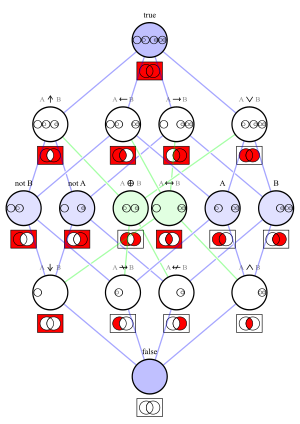 Image via Wikipedia
Image via WikipediaWhy shouldn't policymakers design the
computer code and device parameters to more closely hew to the desired
legal outcome? Because the desired legal outcome is created by committee and the law is not obliged to work only to make people feel like they've done something. Bad
laws are passed constantly and by and large if the law is too ludicrous or unrealistic people merely won't enforce it or will enforce it selectively and pretty much forget over time.
Bad design is eternal, the physical world does not simply ignore foolish or impossible design decisions consequence happens and usually in a devastating manner. An engine or device that clings to what is legal will often not do what is practical, especially as what is legal can be fluid throughout the
design process. We currently have cars that will not start until a
breathalyzer is used on the
steering column and that is all well and good. What if a similar device was made slightly earlier, say when in some counties women were not allowed to drive without a man present, or devices that keep a car from exceeding the speed limit under any circumstance. These may be silly but are unjust and unsafe. One of the founding ideals of the law is the idea that sometimes the law is wrong and human judgment should be used. Technology cannot apply such judgment. nor in many cases should it try. In the Time of
Gilbert and Sullivan some unscrupulous people transmitted their works by telephone and telegraph across the
Atlantic to
America so that actors could perform bootleg operettas. If the
policy makers of the time decided that such illegalities were important and had a hand in designing the phones, would we even have he clear signals we take for granted today? Think of what a
printing press that values the
local ordinance for obscenity or property over clarity of copy. Would we even have modern faith as we understand it if the
Church policy makers chained the press to their requirements instead of those of the people? Technological growth is unfortunately amoral, sometimes our reach exceeds our grasp and the capacities science gives us are ones we are not mature enough to use well, but far more often this increase in capacity is the spark that topples existing injustice simply by making control of the new capacities too expensive to police. I don't want my equipment designed by people who care about what's legal I want it designed by people who care about making good equipment. I have my own moral faculties.
 Image via WikipediaSorry to post all of these at once they were created much earlier in Google docs and I thought they would automatically post to my blog the way the rules update posts did. turns out no.
Image via WikipediaSorry to post all of these at once they were created much earlier in Google docs and I thought they would automatically post to my blog the way the rules update posts did. turns out no.






